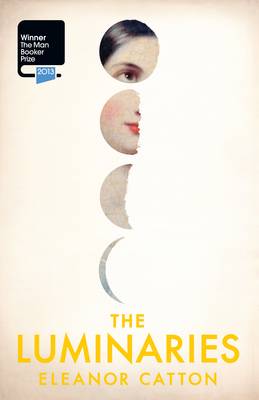Reviewed by celinenyx on
Although I love the idea, and the execution is handled well, I never truly latched onto The Luminaries. I started reading it in December 2016, and read it on and off, only to finish it in March 2018. On one hand it is a testament to the novel that I kept coming back, but on the other it is very telling that I kept prioritizing other books as well. It is more a book that I admire from a distance, than one I devour.
Set during the gold rush in New-Zealand, The Luminaries starts with Walter Moody arriving in Hokitika, a small mining outpost in the New-Zealand wilderniss, having seen a ghost. The story involves several fortunes gained and lost, secrets that can't be contained, and a missing person considered dead. The cast of main characters is large, though Ms Catton draws them with Dickensian eccentricity which helps keeping them apart.
I feel like a broken record here, but I was disappointed by the centrality of men in The Luminaries. The three named women in the book barely figure - and in a 800-page novel I feel there is no excuse for this. Both Anna Wetherell and Mrs Sheppard are wet mops of women, simply being buffered around by the men in their lives, showing nothing but the slightest moments of agency. Nor are they given much interiority, with makes matters worse. Lydia Wells is an unsympathetic figure yet interesting, but is equally kept from the narrative. Though the women, in particular Anna and Lydia, are essential for the plot, it is the men that tell and move this story. The women take the traditional passive role - and this frustrates me. Even true 19th-century literature gives women more agency and voice than this, no matter how unequally treated they were. It's the 21st century. We can do better than this.
---
Trigger warnings: drug addition, emotional and physical abuse, racism, questionable consent, miscarriage.
Reading updates
- Started reading
- 13 March, 2018: Finished reading
- 13 March, 2018: Reviewed
